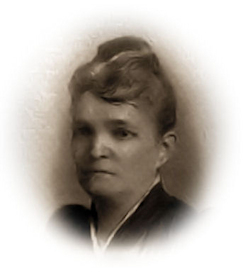Jan. 28, Monday.—Sunday has now got to be a day of special excitement. The gentlemen save all the sensational papers to regale us with at the late Sunday breakfast. Rob opened the battle yesterday morning by saying to me in his most aggressive manner, “G., I believe these are your sentiments”; and then he read aloud an article from the “Journal des Debats” expressing in rather contemptuous terms the fact that France will follow the policy of non-intervention. When I answered: “Well, what do you expect? This is not their quarrel,” he raved at me, ending by a declaration that he would willingly pay my passage to foreign parts if I would like to go. “Rob,” said his father, “keep cool; don’t let that threat excite you. Cotton is king. Just wait till they feel the pinch a little; their tone will change.” I went to Trinity Church. Some Union people who are not Episcopalians go there now because the pastor has not so much chance to rail at the Lord when things are not going to suit: but yesterday was a marked Sunday. The usual prayer for the President and Congress was changed to the “governor and people of this commonwealth and their representatives in convention assembled.”
The city was very lively and noisy this evening with rockets and lights in honor of secession. Mrs. F., in common with the neighbors, illuminated. We walked out to see the houses of others gleaming amid the dark shrubbery like a fairy scene. The perfect stillness added to the effect, while the moon rose slowly with calm splendor. We hastened home to dress for a soirée, but on the stairs Edith said, “G., first come and help me dress Phoebe and Chloe [the negro servants]. There is a ball to-night in aristocratic colored society. This is Chloe’s first introduction to New Orleans circles, and Henry Judson, Phoebe’s husband, gave five dollars for a ticket for her.” Chloe is a recent purchase from Georgia. We superintended their very stylish toilets, and Edith said, “G., run into your room, please, and write a pass for Henry. Put Mr. D.’s name to it.” “Why, Henry is free,” I said.—”That makes no difference; all colored people must have a pass if out late. They choose a master for protection and always carry his pass. Henry chose Mr. D., but he’s lost the pass he had.” When the pass was ready, a carriage dashed up to the back-gate and the party drove off in fine style.
At the soirée we had secession talk sandwiched everywhere; between the supper, and the music, and the dance; but midnight has come, and silence, and a few too brief hours of oblivion.
Note: To protect Mrs. Miller’s job as a teacher in post-civil war New Orleans, her diary was published anonymously, edited by G. W. Cable, names were changed and initials were generally used instead of full names—and even the initials differed from the real person’s initials. (Read Dora Richards Miller’s biographical sketch.)
